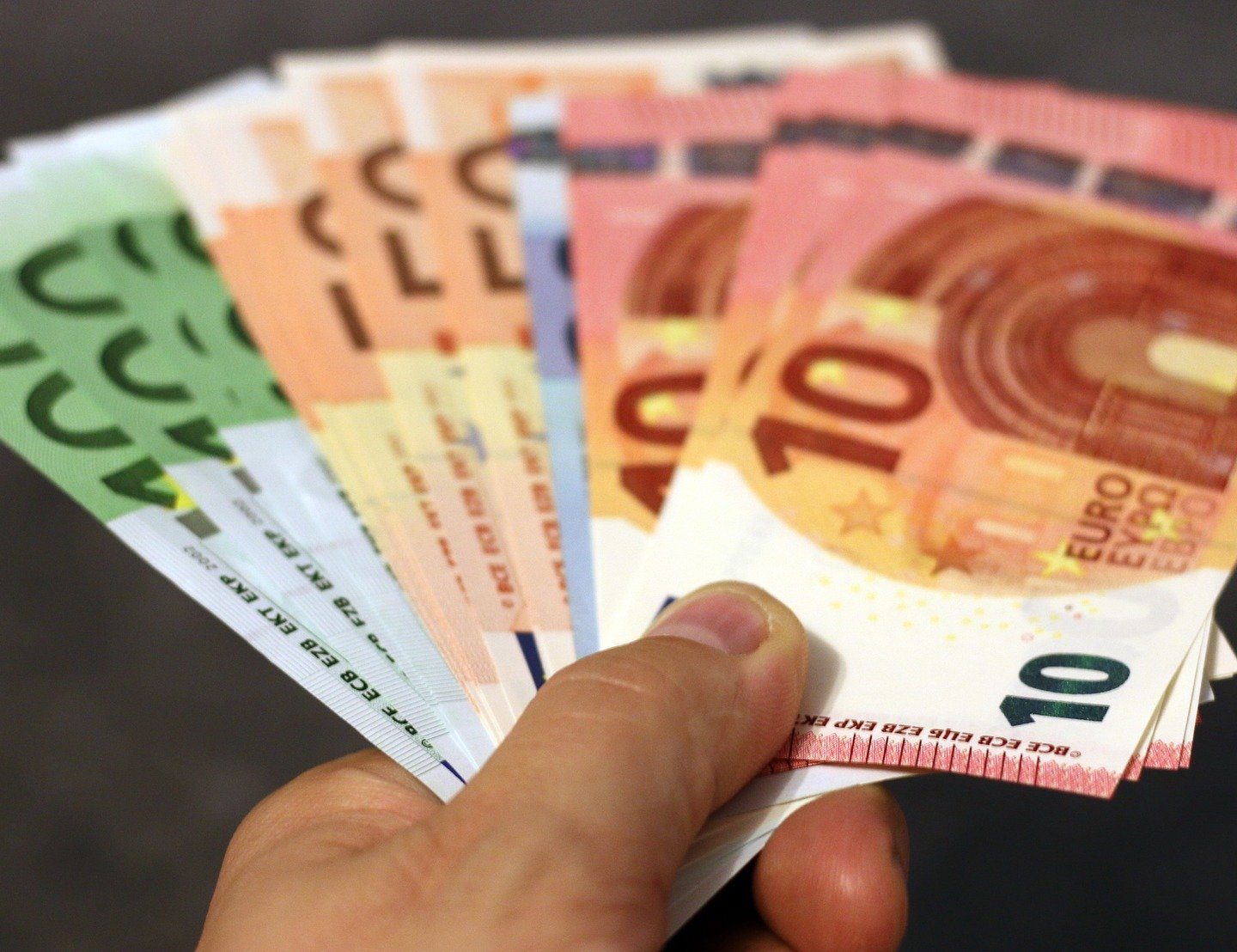Tipping in Germany works differently than in the United States, where tips usually constitute the majority of the waitstaff’s paychecks. In fact, a waiter or waitress in the U.S. can even lose money if they don’t receive a tip, as the general tipping standard is accounted for in taxes.
In Germany, on the other hand, waitstaff and bartenders always earn at least the minimum wage, with the German minimum wage slightly higher than that in the U.S. The differences between these two systems means that German tourists may not understand the necessity of tipping 15–25% while traveling in the U.S., while U.S. visitors to Germany are likely to over-tip the waitstaff.
In Germany, most people will round up to the next euro amount that results in a reasonable tip (see examples below), or occasionally round to a fifty-cent increment for smaller purchases, like a coffee. Because it’s not common to tip more than a couple of euros in Germany, you need to know how to clarify your intent when trying to tip. Do not use the phrase der Tipp as it does not refer to money being given for good service; it actually means “tip” in the sense of “hint,” piece of advice,” or “suggestion.”
How to communicate about tips in German

The German word for a tip given for service is (das) Trinkgeld. This translates literally to “drink money,” which makes it one of several phrases related to tipping in Germany that might sound awkward in English if translated directly. (Note: these are common in German!)
–Das macht zusammen 40 Euro 50. Zahlen Sie bar oder mit Karte?
-Ich zahle bar. Hier sind 45 Euro, das stimmt so.
-Danke.
-“Together that make 40 euros and 50 cents. Will you be paying in cash or with a card?”
– “I’ll pay in cash. Here’s 45 euros, keep the change.”
-“Thanks.”
As you may have noticed, das stimmt so means “keep the change” in this context. If your bill is for 8 euros and 70 cents and you’d like to pay with a 10 euro note and let the server keep the extra 1.30 euros as a tip, you can say das stimmt so when paying.
If you need change, just state the amount you’d like to pay, including the tip. For example, if you only had a 50 euro bill in the situation above, you would hand it to your server and say Zehn Euro, bitte. They will know to give you 40 euros in change, keeping the same tip of 1.30 euros for themselves.
The use of danke:
Keep in mind that danke should be used as the final word, since if you say it while handing your server the money, they might think you actually mean Das stimmt so. To avoid confusion, it’s better to wait until they return your change to say “thank you.”
If you’d like to learn more phrases related to tipping in Germany, and getting around the country in general, then you can embark on your own personal language learning journey with the Yabla German platform. Yabla offers a wide variety of videos – including narrative and documentary film clips, music videos, original content, and more – featuring native speakers.
Games, vocabulary lists, interactive subtitles, comprehension questions, and dictation exercises help you master spelling, grammar, vocabulary, pronunciation, and listening skills.
With Yabla, you can learn at your own pace using videos pertaining to your specific interests. Expand your horizons by learning German, the most spoken language in the EU.
